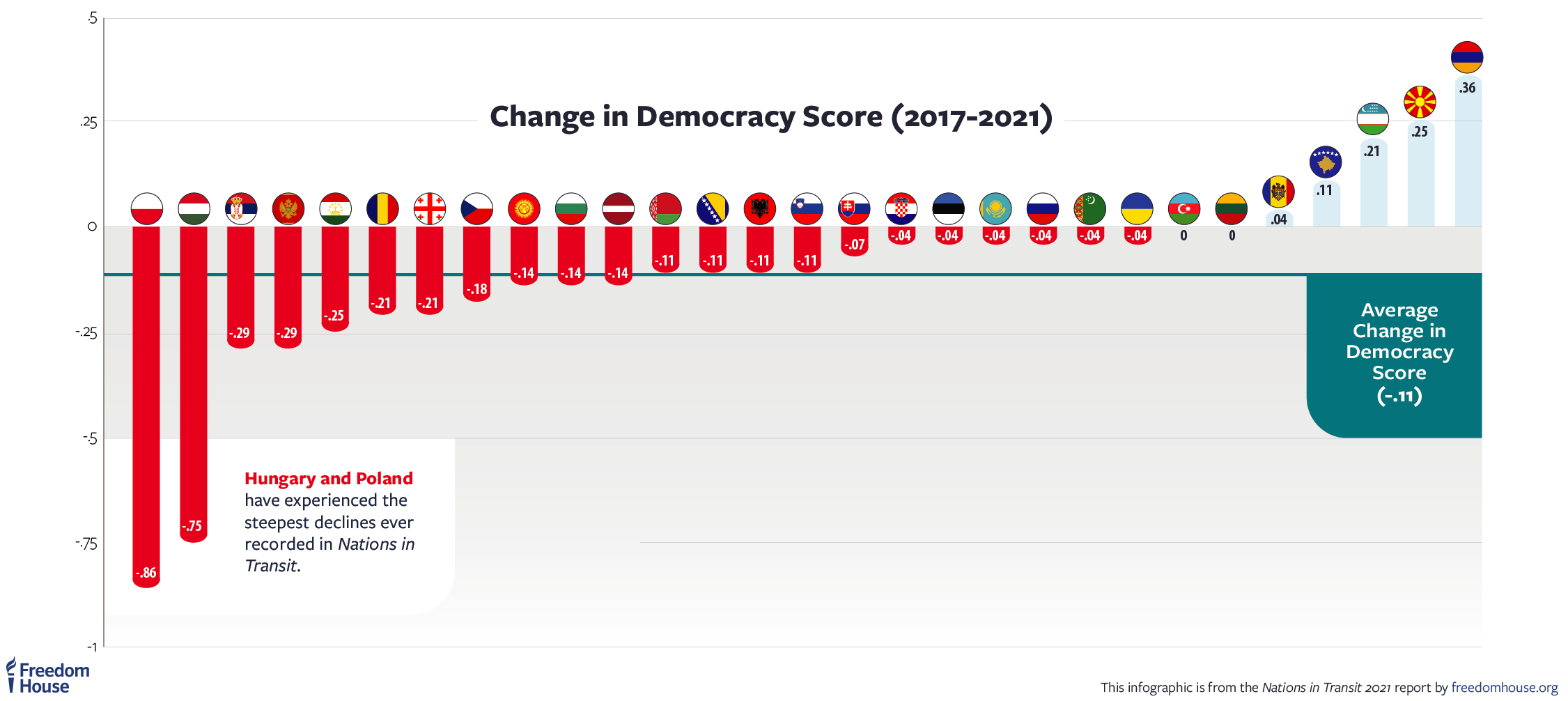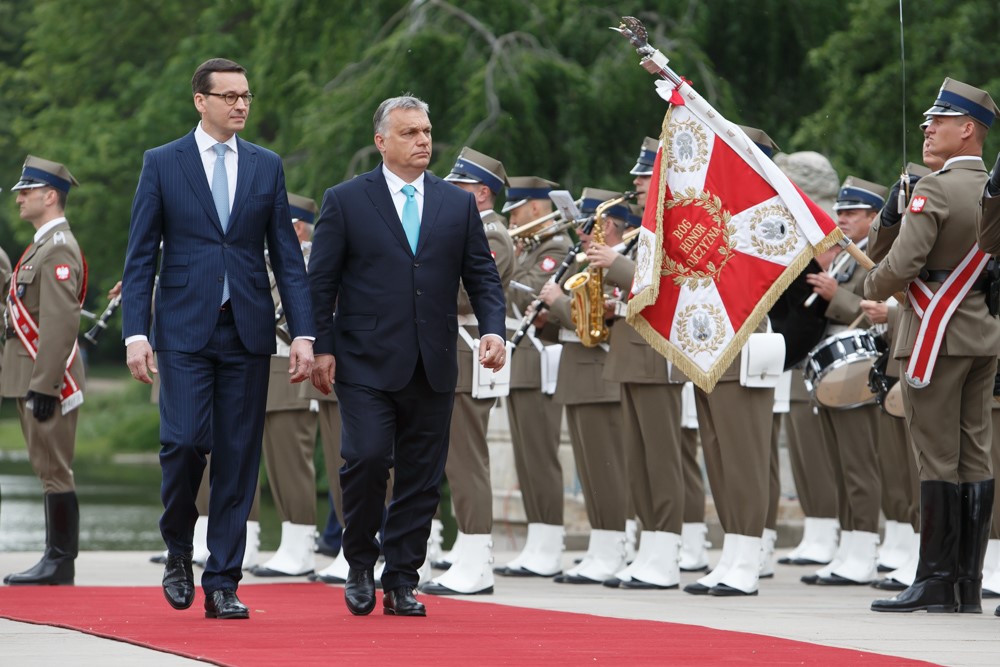Poland has recorded the biggest decline in democracy over five years across 29 countries in Central and Eastern Europe and Central Asia monitored by Freedom House, a leading US-based NGO.
In its annual Nations in Transit report, published today, Freedom House notes that “two countries, Poland and Hungary, stand out for their unparalleled democratic deterioration over the past decade” but that Poland’s “decline over the past five years has been steeper than that of Hungary”.

“The ruling parties in Budapest and Warsaw have long been emulating each other in cracking down on judicial autonomy, independent media, the civic sector, and vulnerable minority populations,” says the NGO. It warns that the two are now “setting new norms and openly spreading antidemocratic practices” in the region.
One instance of this is Hungary’s practice of bringing media under greater government control. This has also spread to Poland, where a state-owned energy firm recently acquired four fifths of the country’s regional media outlets and the government announced plans for a new media tax.
Last week, Poland fell to its lowest ever position of 64th in the annual World Press Freedom Index compiled by another NGO, Reporters Without Borders. In February, the International Press Institute warned that Poland’s government is “waging a multi-pronged attack on independent media”.
Freedom House notes that “Poland’s ruling Law and Justice (PiS) party has led the way…[in] the fight against what it calls ‘LGBT and gender ideology'”, employing “hateful rhetoric” in a strategy that has been imitated elsewhere, including in Hungary.
The NGO says that PiS candidate Andrzej Duda won re-election as president last year following a “homophobic campaign” during which he promised a constitutional ban on adoption by same-sex couples and described LGBT as an “ideology of evil”.
Poland was last May ranked as the worst country in the European Union for LGBT people by ILGA-Europe, which pointed to the “hateful rhetoric from the government and the church” against sexual and gender minorities.
Freedom House also points to how, during last year’s election campaign, PiS “exploited state resources and political control over the public broadcaster to stymie the opposition’s energetic bid for the presidency” and promote Duda.
During the campaign, news broadcasts on public television regularly promoted Duda while attacking Rafał Trzaskowski, the main opposition candidate. Trzaskowski was accused of working on behalf of a “powerful foreign lobby” linked to George Soros and of seeking to “fulfil Jewish demands”.
Last year, election observers from the OSCE reported that the “campaign was characterised by intolerant rhetoric and a public broadcaster that failed in its duty to offer balanced and impartial coverage”. Poland’s commissioner for human rights, Adam Bodnar, also accused state media of violating their statutory impartiality.
Freedom House also cited Poland as an example of “intense repression” of public protests. “Warsaw cracked down on a mass movement contesting a Constitutional Tribunal ruling which effectively outlawed abortion,” it notes.
In the wake of that ruling in October, the largest protests in Poland’s post-1989 history broke out. On a number of occasions, police deployed force against the demonstrators, including the use of batons and tear gas.
The protests’ leaders are also facing charges for various crimes, including insulting police, causing an epidemiological threat, offending religious feelings, and maliciously interfering with the public performance of a religious act.
The authorities have argued that the use of force by police was necessitated by the aggressive behaviour of the protesters themselves.
PiS and its supporters also say that their policies towards the media have been part of a necessary rebalancing of a landscape that was previously dominated by liberal-leaning outlets, many of which have foreign ownership.
Likewise, they argue that an overhaul of the judiciary was necessary because of the longstanding failure since 1989 to remove “post-communists” from the system. However, critics note that PiS itself has appointed some former communists to the judiciary.
Freedom House’s democracy score, which takes accounts of factors such as media and judicial independence, corruption, civil society and the electoral process, had already last year seen Poland decline from being classified as a full democracy to only a “semi-consolidated one”.
In its latest report, it calls for the EU and other European governments to “work to ensure that the system of media capture pioneered and exported by Hungary does not take root in Poland and other countries”.
This should include “the adoption of EU-wide rules on transparency of media ownership” as well as ensuring that “the European Commission’s rule-of-law reports include an assessment of independence at state-owned media in each member state to enable early detection of signs of media capture”.
Main image credit: KPRM (public domain)

Daniel Tilles is editor-in-chief of Notes from Poland. He has written on Polish affairs for a wide range of publications, including Foreign Policy, POLITICO Europe, EUobserver and Dziennik Gazeta Prawna.




















